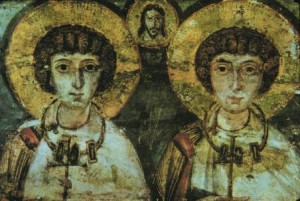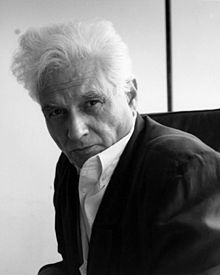In the technological age, we have a horrendous tendency towards boredom. This is unfortunately true even of Christmas. You see the same people, sing the same songs, hear the same homilies, and eat the same food, year after year. For some, this boredom even stretches beyond the social and religious artifacts of Christmas, into the commercial aspects. They stare blankly at shiny new gadgets that cost more than many developing countries GDPs. They were ecstatic about it just one day previous, but today, the day after, there is no joy to be had. Why? Because these things are commonplace. Getting new things is nice, but the feeling it gives you doesn’t live up to the hype that Christmas receives. And in fact it can’t. This is where many of us who profess a faith in Christ begin our “Keep Christ in Christmas” spiel. But is this even enough to understand? For all our slogans and good intentions even we get caught up in the boredom. God is so much a part of our lives that it’s hard for us to feel like this season is special. So how do we get over this problem? How do we get past our “grown-up” boredom, and back to the childlike excitement toward this time of year?
I think it’s fair to explain this in two parts:
1. Realizing What’s Happened;
This seems like the most obvious thing in the world. “Christ is born. Glorify Him.” But it’s easy, even for the best of the Christian faithful, to forget what this beautiful refrain means. Christmas is the day that “The Word became flesh” and the prophecies of old began their fulfillment. Rather than ramble on about this, I would like to allow the Golden Tongue himself explain
This day He Who is, is Born; and He Who is, becomes what He was not. For when He was God, He became man; yet not departing from the Godhead that is His. Nor yet by any loss of divinity became He man, nor through increase became He God from man; but being the Word He became flesh, His nature, because of impassability, remaining unchanged. -St. John Chrysostom
2. Realize What that Means;
God became man. This seems almost normal to us at this point, but let’s try to comprehend. For Christmas to matter at all we must understand something about God and us. According to Kierkegaard, there exists between us and God an “Infinite Qualitative Distinction.” Let me explain, a qualitative distinction is a distinction made on the basis of the nature of the things in question, as opposed to the amount of those things. Example: the difference between you and your counter-top is a qualitative distinction, while the difference between how much food there is in your refrigerator and how much food there is in your neighbor’s is not.
This theme of infinite qualitative distinction can be found throughout Scripture, particularly the Old Testament. But what does this have to do with Christmas?
Well, to understand that we have to understand the effect of the distinction between God and man. God is the absolute Other. Of all that there is, there is nothing in which man has less qualitative similarity (I mean, come on! He even exists outside of time!(at least trees exist in time)). This is a death blow to the ancient heresy of Pelagianism. Man cannot overcome this infinite gap that lays between him and God.
And here’s where Christmas comes in.
Throughout the Old Testament we see God as the great hero, the true hero, of the Jewish people. But what’s the use if there will always be this impenetrable abyss of separation between God and man? But “He Who Is became what He was not,” at Christmas. Thus God Himself overcame this absolutely insurmountable obstacle for us. This is what can save us from the “grown up” boredom of Christmas; an understanding that it is not a time of presents, food and family for the sake of those things, it is not even the celebration of the birth of great man, but it is the absolute jubilation felt in the presence of a miracle, the miracle of the Incarnation and it is by this miracle of God’s Incarnation that we were saved from the otherwise unavoidable and insurmountable despair of the abyssal gap between God and man.











